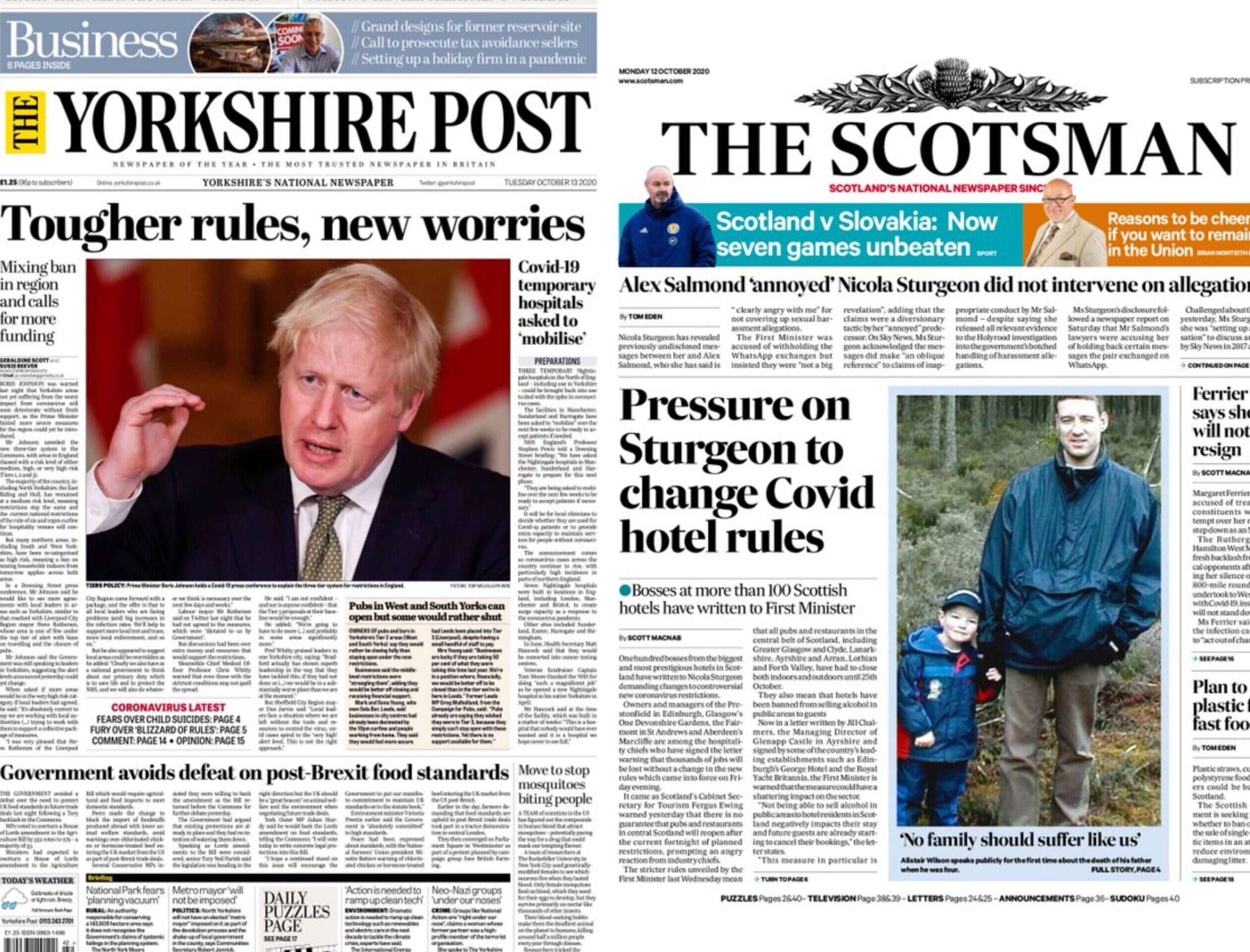
Regional publisher JPI Media has revealed its first financial statement since buying Johnson Press’ assets from administration in 2018, as the business is up for sale once again.
The full-year accounts for JPI Media Holdings Ltd, covering the period from its incorporation on 28 September 2018 to 4 January 2020, show the publisher made a loss before tax of £47.7m and an operating loss of £34.5m.
However it also paid back £65m out of more than £100m owed at the start of the period and delivered adjusted profit before interest, taxes, depreciation and amortisation on continuing operations of £17.7m.
Of revenues of £145.9m: £52.2m came from newspaper sales and £72.5m from advertising – of which £49.3m was in print and £23.2m in digital.
In the accounts, JPI director David Duggins said the business had been focusing investment on growing its digital business “while protecting its revenue and cash flow from print publishing operations”.
Print advertising and circulation remain the biggest revenue sources – 70% of the total – despite falling demand. Digital made up 15%.
As part of JPI’s digital growth plan, it has now rolled out a “digital acceleration” restructure in three divisions – North Midlands and South Yorkshire, North East, and Scotland – and put up paywalls on 12 of its websites, with subscriptions and better engagement seen as a sustainable way forward.
It now has more than 1m registered users across its websites which it said would allow it to better monetise readers through advertising and targeted subscription offers.
Contract printing revenues of £13.7m were hit “by lost business following reduced sales volumes generally in the UK print publishing industry”. A further £7.5m in revenue came from syndication, leaflets, reader offers and events.
Total adjusted earnings before interest, taxes, depreciation and amortisation for period included a profit contribution of £14.5m from the i newspaper – making a total adjusted EBITDA of £32.3m.
Of JPI’s cash flows and debts, Duggins said: “The group has significant cash resources and operating headroom to support the activities of the business, however, it is highly levered.
“The group’s interest cost in 2020 is forecast to be £5.5m. Following the disposal of [the i] and repayment of £65m of borrowings during the period, long term debt maturing November 2023 of £55m remains repayable.
“Further downward pressure on revenues could reduce operating cash flow below the level required to service interest commitments.
“The group mitigates liquidity risk by having in place appropriate controls to forecast and manage its future cash flows.”
Johnston Press bondholders bought its 172 newspaper titles and hundreds of websites, including The Scotsman and The Yorkshire Post, from administration in November 2018 and rebranded as JPI.
It has since sold off its only national title, the i, to Mail publisher DMGT and is currently searching for a buyer for the rest of its assets.
Sky reported last week that Archant and a consortium led by ex-Local World boss David Montgomery have both tabled bids. Archant, which has just been bought out by an investment capital firm itself, is said to be seen as the most likely buyer due to the potential of cost savings in consolidation.
JPI used the £49.4m it received for the i in November 2018 to pay DMG Media £2.2m as an agreed working capital contribution and to repay £45m of its outstanding debt.
JPI spent £6m on restructuring and redundancy costs, namely £3.6m in redundancy, £1.8m in consultancy costs “to transform the editorial and advertising teams” and £0.6m in property restructuring.
Job cuts in the financial period included a call for up to 70 full-time editorial voluntary redundancies across the UK and 22 full-time equivalent staff in community teams.
As of 4 January, JPI had staff costs of £74.3m for a workforce of 1,695 (of which 750 were editorial).
At least eight newspaper offices were closed in spring 2019 when the company put its property portfolio under review. It said a move to “agile working” with staff at home or in shared-working spaces or rented offices would help it to “retain jobs and sustain titles”.
The company revealed further plans to close 11 offices this summer, citing the successful move to home working during lockdown.
There were also £1.3m in transition and strategic costs, namely professional advisory fees incurred by the initial Johnston Press acquisition. Further advisory costs were incurred in late 2019 by an aborted plan to sell off the regional business, which cost £1.4m in total.
Duggins said lower revenues are expected in the 2020 financial year because of Covid-19 but that a return to a “more normal revenue performance” is anticipated once conditions improve.
“Whilst the ultimate extent of the effect of this matter on the group cannot be precisely determined at present, the directors are satisfied it does not impact the company’s or group’s going concern.”
JPI used the furlough scheme to reduce staff costs during lockdown and offset advertising and circulation revenue declines. These have begun to improve as lockdown eased, the statement said.
Email pged@pressgazette.co.uk to point out mistakes, provide story tips or send in a letter for publication on our "Letters Page" blog
